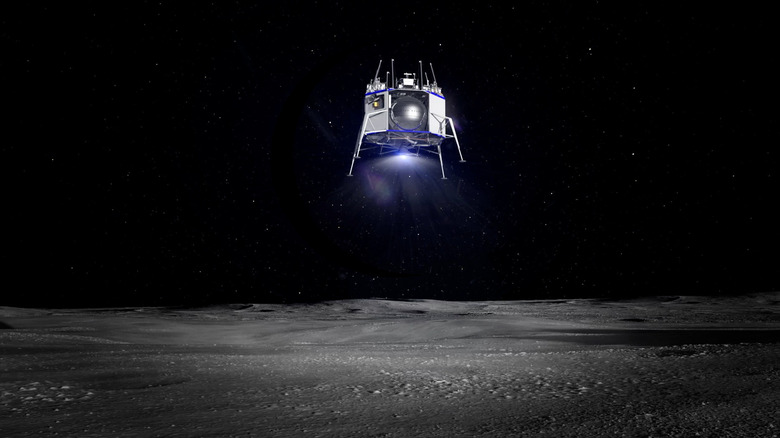NASA Gives Blue Origin An Artemis Crewed Lunar Lander Contract After Bezos Snit
NASA has awarded a contract worth $3.4 billion to Blue Origin toward the development of a lunar lander system for crewed missions to the Moon as part of the Artemis V project. The space agency is aiming for a crewed demo using the in-development Blue Moon lander ahead of the Artemis V mission in 2029. The contract is a bittersweet victory for the private space enterprise started by Jeff Bezos, after losing plum NASA contracts to Elon Musk-backed rival space agency, SpaceX.
Administrator Bill Nelson announced that "Blue Origin will build a human landing system as NASA's second provider to deliver Artemis astronauts to the lunar surface." As part of the deal, NASA has asked Blue Origin to make some technical tweaks to its Blue Moon lander system in the same vein as SpaceX's Starship, which includes making space to accommodate more crew members, higher payload capacity, and the ability to support to long-duration missions.
Originally issued in September last year, Blue Origin won the contract as part of NASA's Appendix P solicitation, specifically its second Next Space Technologies for Exploration Partnerships Broad Agency Announcement (Next-STEP2 BAA). NASA says partnering with two different contractors and employing their distinct lander systems grants it "more robustness and ensures a regular cadence of Moon landings."
Back in the Artemis game
As part of the Artemis mission, NASA will launch four astronauts into space aboard the Orion spacecraft. It will dock with Gateway, a multi-purpose space outpost circling the Moon that serves a key purpose for the Artemis missions and will also be used as a staging point for future space exploration missions. Once the crew leaves the lunar orbit station, they will proceed to the moon aboard Blue Origin's Blue Moon lander system with the goal of a soft landing.
Blue Origin will be assisted in its Artemis V endeavors by Boeing, Lockheed Martin, and Draper, among others. As for Blue Origin's vehicle, it is capable of moving both crewed as well as cargo-only payloads. In addition to developing a lunar lander, Blue Origin will also be working on a cislunar transporter, both of which are based on LH2/LOX propulsion architecture. Blue Origin has already tested it successfully for its New Shephard reusable rocket system.
The lander itself can provide power in the kilowatt range to the onboard payload, ensuring that it remains safe and functional for long-term missions and can survive the chilly lunar night-time conditions. This isn't the only NASA contract in Blue Origin's kitty. The space agency awarded $130 million to Blue Origin and Sierra Space for developing a private space station called Orbital Reef. Sierra Space expects the space station to be ready by 2027, but experts are of the opinion that it won't be ready until 2030.

